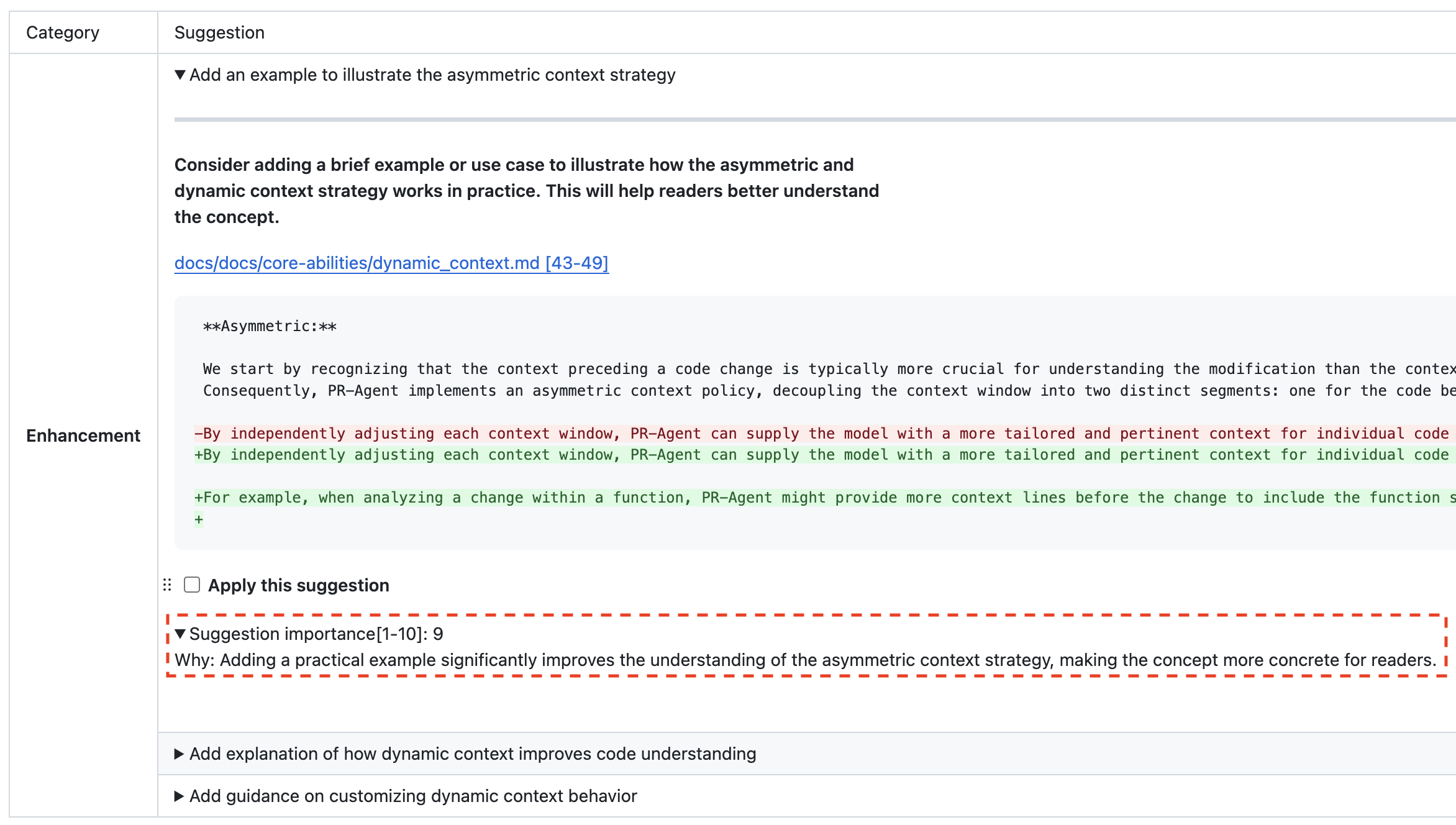Self-reflection
Supported Git Platforms: GitHub, GitLab, Bitbucket
Qodo Merge implements a self-reflection process where the AI model reflects, scores, and re-ranks its own suggestions, eliminating irrelevant or incorrect ones. This approach improves the quality and relevance of suggestions, saving users time and enhancing their experience. Configuration options allow users to set a score threshold for further filtering out suggestions.
Introduction - Efficient Review with Hierarchical Presentation¶
Given that not all generated code suggestions will be relevant, it is crucial to enable users to review them in a fast and efficient way, allowing quick identification and filtering of non-applicable ones.
To achieve this goal, Qodo Merge offers a dedicated hierarchical structure when presenting suggestions to users:
- A "category" section groups suggestions by their category, allowing users to quickly dismiss irrelevant suggestions.
- Each suggestion is first described by a one-line summary, which can be expanded to a full description by clicking on a collapsible.
- Upon expanding a suggestion, the user receives a more comprehensive description, and a code snippet demonstrating the recommendation.
Fast Review
This hierarchical structure is designed to facilitate rapid review of each suggestion, with users spending an average of ~5-10 seconds per item.
Self-reflection and Re-ranking¶
The AI model is initially tasked with generating suggestions, and outputting them in order of importance. However, in practice we observe that models often struggle to simultaneously generate high-quality code suggestions and rank them well in a single pass. Furthermore, the initial set of generated suggestions sometimes contains easily identifiable errors.
To address these issues, we implemented a "self-reflection" process that refines suggestion ranking and eliminates irrelevant or incorrect proposals. This process consists of the following steps:
- Presenting the generated suggestions to the model in a follow-up call.
- Instructing the model to score each suggestion on a scale of 0-10 and provide a rationale for the assigned score.
- Utilizing these scores to re-rank the suggestions and filter out incorrect ones (with a score of 0).
- Optionally, filtering out all suggestions below a user-defined score threshold.
Note that presenting all generated suggestions simultaneously provides the model with a comprehensive context, enabling it to make more informed decisions compared to evaluating each suggestion individually.
To conclude, the self-reflection process enables Qodo Merge to prioritize suggestions based on their importance, eliminate inaccurate or irrelevant proposals, and optionally exclude suggestions that fall below a specified threshold of significance. This results in a more refined and valuable set of suggestions for the user, saving time and improving the overall experience.

